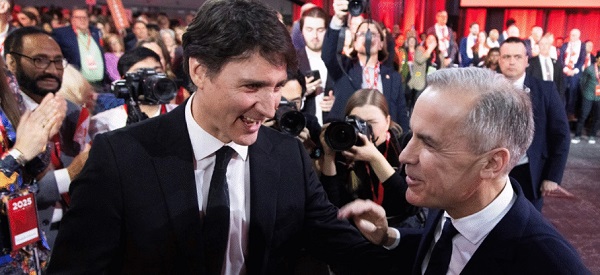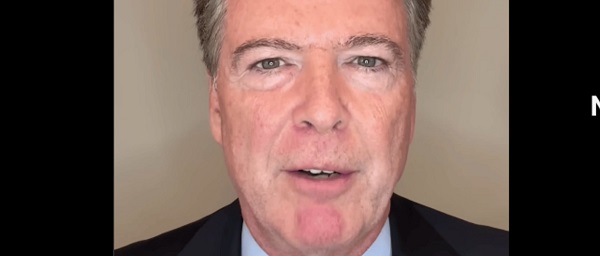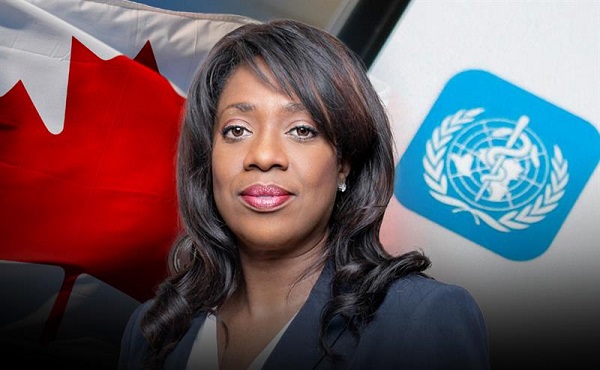Business
Government debt burden increasing across Canada

From the Fraser Institute
By Tegan Hill, Jake Fuss and Spencer Gudewill
As governments across Canada unveil their 2025 budgets, outlining their tax and spending plans for the upcoming fiscal year, they have an opportunity to reverse the trend of deficits and increasing debt that has reigned in recent years.
Indeed, budget deficits, which fuel debt accumulation, have become a serious fiscal challenge for the federal and many provincial governments, primarily due to high levels of government spending. Since 2007/08—the final fiscal year before the financial crisis—combined federal and provincial net debt (inflation-adjusted) has nearly doubled from $1.2 trillion to a projected $2.3 trillion in 2024/25. And you can’t blame COVID, as combined federal and provincial net debt (inflation-adjusted) increased by nearly $600 billion between 2007/08 and 2019/20.
Federal and provincial net debt (inflation-adjusted) per person has increased in every province since 2007/08. As shown in the below chart, Newfoundland and Labrador has the highest combined (federal and provincial) debt per person ($68,516) in 2024/25 followed by Quebec ($60,565) and Ontario ($60,456). In contrast, Alberta has the lowest combined debt per person ($41,236) in the country. Combined federal and provincial net debt represents the total provincial net debt, and the federal portion allocated to each of the provinces based on a five-year average (2020-2024) of their population as a share of Canada’s total population.

The combined federal and total provincial debt-to-GDP ratio, an important fiscal indicator that compares debt with the size of the overall economy, is projected to reach 75.2 per cent in 2024/25. By comparison, the ratio was 53.2 per cent in 2007/08. A rising debt-to-GDP ratio indicates government debt has grown at an unsustainable rate (in other words, debt levels are growing faster than the economy). Among the provinces, the combined federal-provincial debt-to-GDP ratio is highest in Nova Scotia (92.0 per cent) and lowest in Alberta (42.2 per cent). Again, the federal debt portion is allocated to provinces based on a five-year average (2020-2024) of their population as a share of Canada’s total population.
Interest payments are a major consequence of debt accumulation. Governments must make interest payments on their debt similar to households that must pay interest on mortgages, vehicles or credit card spending. When taxpayer money goes towards interest payments, there’s less money available for tax cuts or government programs such as health care and education.
Interest on government debt (federal and provincial) costs each Canadian at least $1,930 in 2024/25. The amount, however, varies by province. Combined interest costs per person are highest in Newfoundland and Labrador ($3,453) and lowest in Alberta ($1,930). Similar to net debt, combined federal and provincial interest costs are represented by the total of the provincial and federal portion with the federal portion allocated to each of provinces based on a five-year average (2020-2024) of their population as a share of Canada’s total population.
Debt accumulation comes with consequences for everyday Canadians as more and more taxpayer money flows towards interest payments rather than tax relief or programs and services. This budget season, federal and provincial governments should develop long-term plans to meaningfully address the growing debt problem in Canada.
Business
Canada Is Still Paying The Price For Trudeau’s Fiscal Delusions

From the Frontier Centre for Public Policy
By Lee Harding
Trudeau’s reckless spending has left Canadians with record debt, poorer services and no path back to a balanced budget.
It’s time for Canada to break free from Trudeau’s big-spending legacy. With soaring deficits, mounting debt, and stalled growth, we need a budget that cuts red tape, flattens taxes, and puts the economy first.
Justin Trudeau may be gone, but the economic consequences of his fiscal approach, chronic deficits, rising debt costs and stagnating growth, are still weighing heavily on Canada.
Before becoming prime minister, Justin Trudeau famously said, “The budget will balance itself.” He argued that if expenditures stayed the same, economic growth would drive higher tax revenues and eventually outpace spending. Voila–balance!
But while the theory may have been sound, Trudeau had no real intention of pursuing a balanced budget. In 2015, he campaigned on intentionally overspending and borrowing to build infrastructure, arguing that low interest rates made it the right time to run deficits.
This argument, weak in its concept, proved even more flawed in practice. Post-pandemic deficits have been horrendous, far exceeding the modest overspending initially promised. The budgetary deficit was $327.7 billion in 2020–21, $90.3 billion the year following, and between $35.3 billion and $61.9 billion in the years since.
Those formerly historically low interest rates are also gone now, partly because the federal government has spent so much. The original excuse for deficits has vanished, but the red ink and Canada’s infrastructure deficit remain.
For two decades, interest payments on federal debt steadily declined, falling from 24.6 per cent of government revenues in 1999–2000 to just 5.9 per cent in 2021–22, thanks largely to falling interest rates and prior fiscal restraint. But that trend has reversed. By 2023–24, payments surged past 10 per cent for the first time in over a decade, as rising interest rates collided with record federal debt built up under Trudeau.
Rising debt costs are only part of the story. Federal revenues aren’t what they could have been because Canada’s economy has stagnated. Population growth pads our overall GDP growth stats, but masks our productivity problem. From 2014 to 2022, Canada had near-lowest GDP growth among 30 countries in the Organization for Economic Co-operation and Development. Canada’s average growth rate during that period (0.6 per cent) was only ahead of Luxembourg (0.5 per cent) and Mexico (0.4 per cent).Why should a country like Canada, so blessed with natural resources and know-how, do so poorly? Capital investment has fled because our government has made onerous regulations, especially hindering our energy industry. In theory, there’s now a remedy. Thanks to new legislation, the Carney government can extend its magic sceptre to those who align with its agenda to fast-track major projects and bypass the labyrinth it created. But unless you’re onside, the red tape still strangles you.
But as the private sector withers under red tape, Ottawa’s civil service keeps ballooning. Some trimming has begun, rattling public sector unions. Still, Canada will be left with at least five times as many federal tax employees per capita as the U.S.
Canada also needs to ease its hell-bent pursuit of net-zero carbon emissions. Hydrocarbons still power the Canadian economy, from vehicles to home heating, and aren’t practically replaceable. Canada has already demonstrated that pursuing net-zero targets can result in near-zero per capita growth. Despite high immigration, the OECD projects Canada to have the lowest overall GDP growth from 2030 to 2060.
The Nov. 4 release of the federal budget is better late than never. So would be a plan to grow the economy, slash red tape and eliminate the deficit. But we’re unlikely to get one.
Lee Harding is a research fellow with the Frontier Centre for Public Policy.
Business
Canadians responsible for $2.3 trillion in government debt: Every single person in Alberta owes $40,939

From the Fraser Institute
By Jake Fuss, Tegan Hill and William Dunstan
The Carney government plans to table its long-awaited federal budget on Nov. 4. In the summer, Prime Minister Carney announced billions of dollars in new spending that could push this year’s federal deficit above $90 billion, which would add significantly to the federal debt.
Indeed, the federal government, and the provincial governments, have racked up mountains of debt over the past decade and a half, with no end in sight.
According to a recent study, combined federal and provincial government net debt (total debt minus financial assets) nearly doubled (inflation-adjusted) from $1.2 trillion in 2007/08 to a projected $2.3 trillion at the end of 2024/25.
Putting this debt in per-person terms helps illustrate its scale.
Combined provincial and federal net debt per person ranges from a low of $40,939 in Alberta to a high of $68,861 in Newfoundland and Labrador. Combined federal and provincial net debt represents total provincial net debt plus each province’s share of federal net debt, which the study allocated to each province based on a five-year average (2020-2024) of their share of Canada’s population.
Of course, Canadians are ultimately responsible for financing this debt. Indeed, governments, like households, must pay interest on their debt, and taxpayers fund these debt interest payments. When tax dollars are spent on debt interest payments, those same dollars cannot be spent on important programs such as health care or used to provide tax relief.
The federal government spent a projected $53.8 billion on debt interest payments in 2024/25, more than it spent on the Canada Health Transfer ($52.1 billion), which supports provincial health-care systems. For many provinces, debt interest costs are the fourth-largest expense after health care, education and social services.
Many governments do not plan to stop adding to their net debt. Federally, the government’s recent tax and spending commitments will likely result in deficits of more than $70 billion each year through 2028/29. Additionally, six provinces—Alberta, British Columbia, Quebec, New Brunswick, Nova Scotia and Prince Edward Island—project budget deficits each year from 2025/26 to 2027/28. All provinces except Saskatchewan project deficits in 2025/26.
But there’s good news. Past governments have shown it’s possible to restrain spending and reduce debt. In fact, the 2008/09 recession marked a turning point for government deficits and debt in Canada. From the mid-1990s to the late-2000s, it was a different story, as the federal government and many provincial governments sought to restrain spending, balance their budgets and limit debt accumulation.
But now and for many years, many governments across Canada have run deficits and accumulated debt, at great cost to taxpayers. It’s time governments develop real plans to address their ballooning debt burdens. The upcoming Carney budget is a good place to start.
-

 armed forces18 hours ago
armed forces18 hours agoSecretive Lockheed Martin Skunk Works reveals latest high-tech military drone
-

 International17 hours ago
International17 hours agoEverything has changed. Again.
-

 Bruce Dowbiggin2 days ago
Bruce Dowbiggin2 days agoWhat We Had Here Is A Failure To Communicate
-

 Business1 day ago
Business1 day agoGun Buyback Program creating criminals out of law abiding citizens and directing police away from actual crime
-

 Daily Caller2 days ago
Daily Caller2 days ago‘Let’s Have A Trial’: Comey Responds To Indictment
-

 Business2 days ago
Business2 days agoCritics Accuse YouTube of Dragging Out Return Process for Banned Channels
-

 Censorship Industrial Complex2 days ago
Censorship Industrial Complex2 days agoConservative MP Leslyn Lewis warns Liberals’ ‘hate’ bill will allow for prosecution of free speech
-

 Opinion1 day ago
Opinion1 day agoThe City of Red Deer’s financial mess – KPMG report outlines failure of council to control spending





